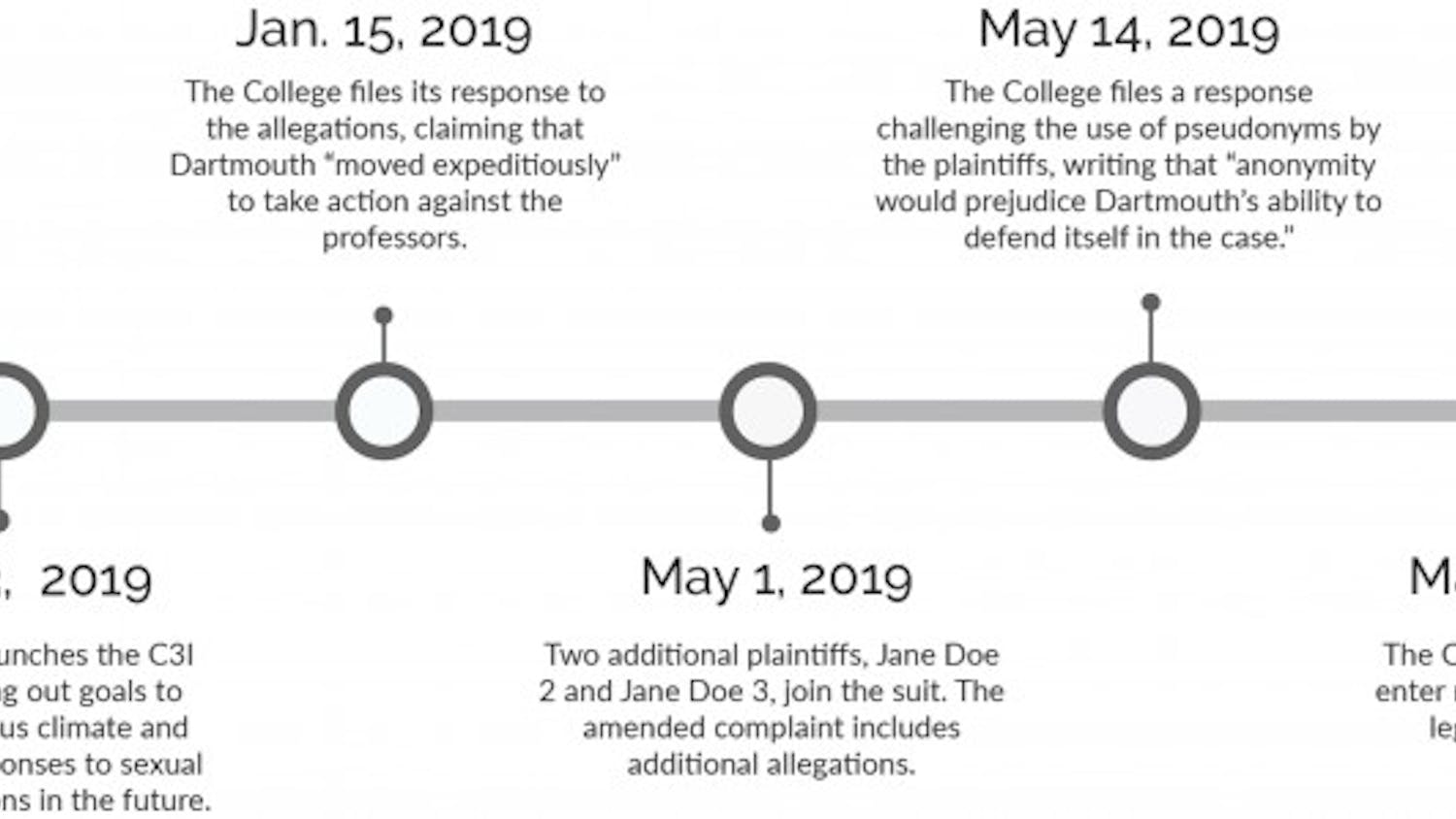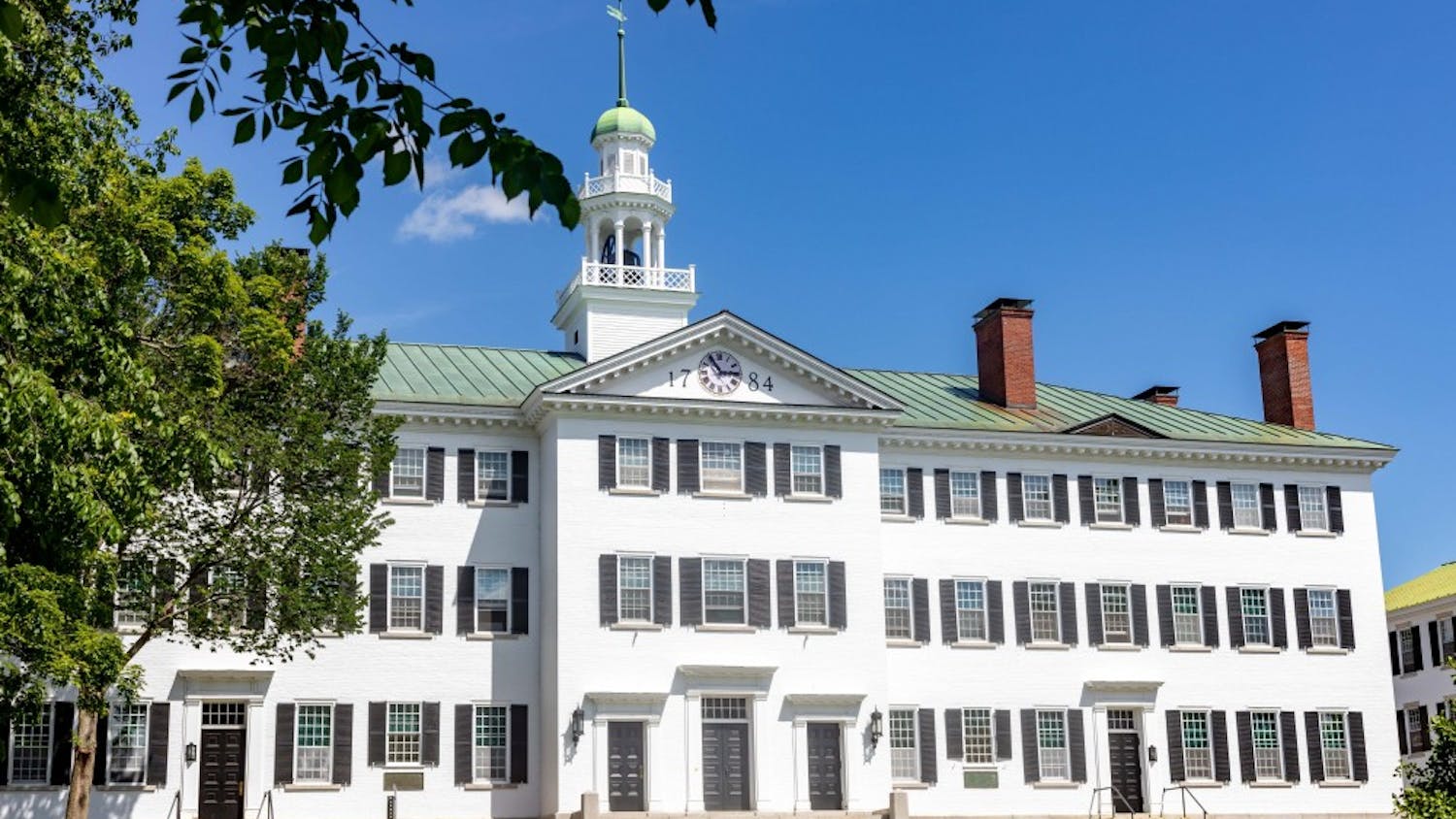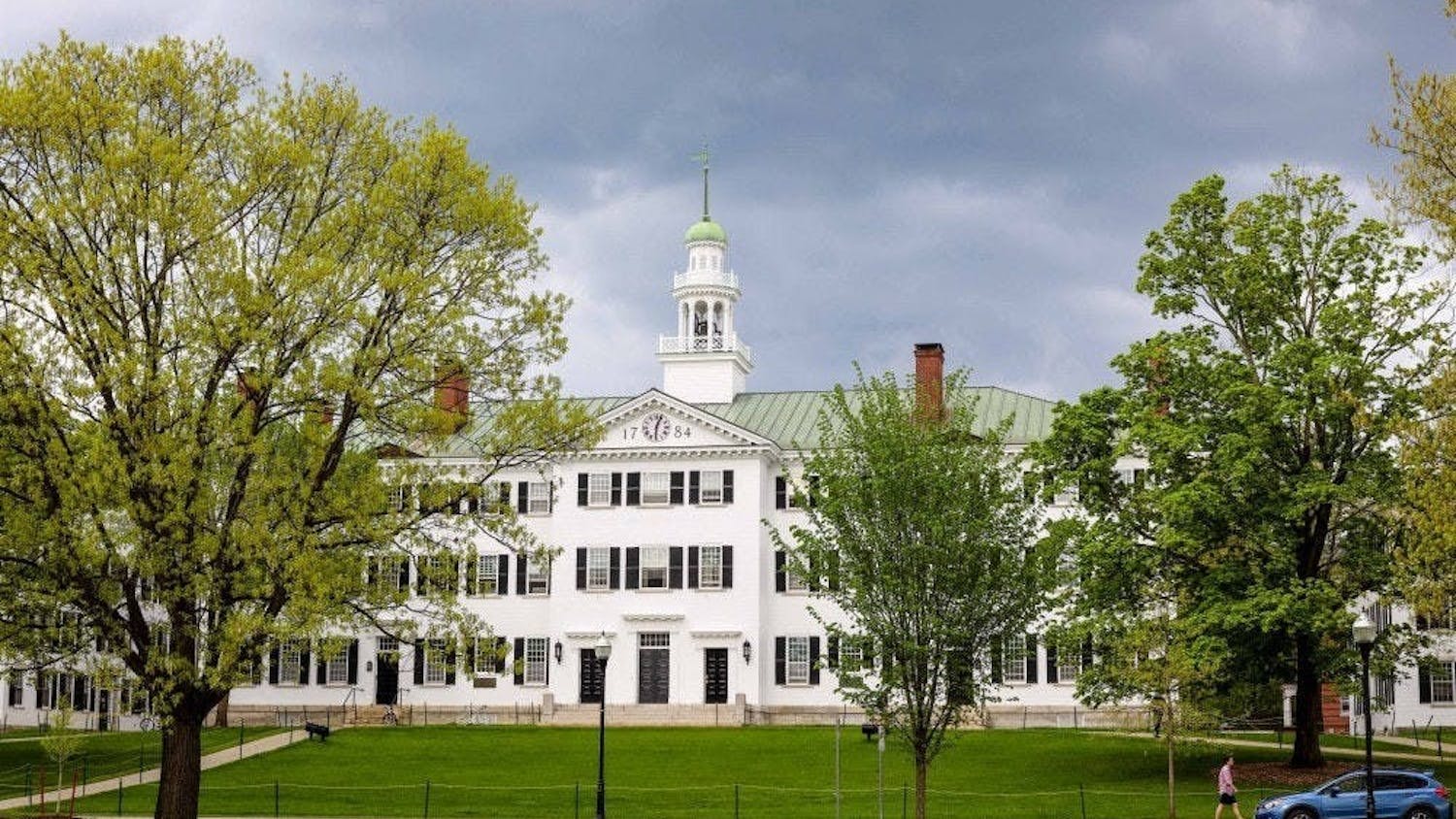A petition criticizing the College’s challenge to the granting of anonymity to three of the nine plaintiffs in the ongoing class-action lawsuit against Dartmouth will be delivered to College president Phil Hanlon today. The petition, which has garnered over 600 signatures, has been in circulation for a month and has gained the support of multiple prominent politicians including Senators Kirsten Gillibrand ’88, Bernie Sanders and Elizabeth Warren; New Hampshire state Senator Martha Hennessey ’76; and Congresswoman Annie Kuster.
The lawsuit alleging that College officials failed to act on allegations of sexual misconduct was filed on November 15, 2018, and on May 1, two new anonymous plaintiffs under the pseudonyms “Jane Doe 2” and “Jane Doe 3” raised new allegations that prompted the College’s challenge.
According to Diana Whitney ’95, founding member of the Dartmouth Community Against Gender Harassment and Sexual Violence, the purpose of the petition is to expose the College’s strategy of “victim blaming, victim shaming and aggression” toward the plaintiffs.
“Launching new initiatives to change campus culture and end sexual violence on campus all while pursuing a very aggressive legal strategy against these [former] students is frankly hypocritical,” Whitney said.
The petition was created by the DCAGHSV and several other on-campus groups, including the Student and Presidential Committee on Sexual Assault and the Dartmouth chapter of the American Association of University Professors, worked with the DCAGHSV to bring the petition to fruition, according to Whitney.
In an email statement to The Dartmouth, college spokesperson Diana Lawrence said that the College only objects to the use of pseudonyms in a class action lawsuit.
“We have made clear to the new Jane Doe plaintiffs through their counsel that Dartmouth does not object to their proceeding pseudonymously if they wish to assert individual claims as opposed to as class representatives,” she wrote.
The College’s legal counsel believes that the law pertaining to pseudonymity in class action lawsuits is clear, according to Lawrence.
“Individuals wishing to be class representatives in a class action lawsuit, which the plaintiffs’ case is, cannot file pseudonymously,” she wrote.
The College and plaintiffs of the lawsuit recently entered mediation to settle the matter outside of court. The process of mediation will begin at the end of July.
“We would much prefer to resolve the claims brought against Dartmouth outside the courtroom where legal nuances can seem insensitive or contradictory,” she wrote.
However, Whitney said that the group will continue to pursue the petition regardless of the outcome of mediation.
“One of the courageous acts of the plaintiffs was that they were able to bring this issue onto a public stage, to raise awareness of sexual violence at Dartmouth,” Whitney said. “I hope that whatever the outcome that this issue is not just swept under the rug for another generation.”
English professor Melissa Zeiger, a member of the executive committee of the AAUP at Dartmouth, expressed concern about the message the College is sending.
“There’s a stigma around being raped,” she said. “My real worry is that this challenge is going to discourage other people who might come forward if they [were able to] use a pseudonym.”
Kuster was an early supporter of the petition, according to Whitney. The congresswoman is herself a survivor of sexual violence while at Dartmouth, and before supporting the petition wrote an op-ed in the Boston Globe condemning the College’s challenge to the plaintiffs’ anonymity. She was followed by Hennessey — also a survivor of sexual assault during her time at Dartmouth — and Senator Elizabeth Warren.
Gillibrand announced her support following a visit to Dartmouth this spring.
“I signed this petition to urge Dartmouth to change course and respect the brave women who are demanding justice,” she wrote in an email statement to The Dartmouth.
Sanders announced his support for the petition on June 26. Sanders called on Dartmouth to “immediately end its opposition to the anonymity of survivors” and called the challenge “an outrageous attempt to reveal the names of the brave survivors who have come forward to hold the institution accountable,” according to a press release published by the campaign.
According to Sanders’ deputy state director and communications director Carli Stevenson, Whitney and the DCAGHSV reached out to the campaign two weeks ago.
“[The Sanders Campaign] wanted to make sure that both the plaintiffs and the community of Dartmouth knew they had our support,” she said.
Stevenson and Gillibrand expressed fears about the effect the challenge would have on survivors coming forward in the future.
“It takes a lot of courage for people to come forward, and Dartmouth is a very wealthy and powerful institution,” Stevenson said. “[The College’s challenge is] a pretty transparent move to create a chilling effect.”
Gillibrand echoed this sentiment.
“Dartmouth’s efforts to block these plaintiffs’ anonymity is wrong and could have a chilling effect on survivors coming forward in the future,” she wrote.
The petition began circulation on May 30, and, according to Whitney, they have heard no response from the College.
Updated (June 28, 2019): The print headline for this article called the petition a misconduct petition instead of an anonymity petition. The online headline has been updated for clarity.



